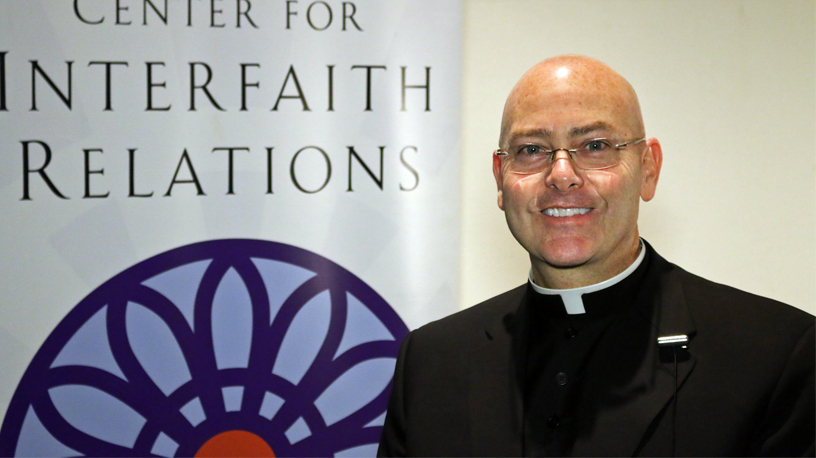By: Very Rev. Jeff Nicolas
Cathedral of the Assumption
What does Catholicism believe about the relationship between the body and spirit? As Catholics we understand from scripture and Tradition that as human beings we are created in the image and likeness of God. We believe we are created as “embodied spirits,” which means our souls are not separate from our bodies, or our bodies from our souls. Just as through the mystery of the Incarnation we believe that Jesus Christ is simultaneously fully human and fully divine, and that his humanity cannot somehow be separated from his divinity or his divinity somehow dissected from his humanity, so too we believe that from our conception our souls and bodies are interrelated. Indeed, this is one of the reasons we believe in the resurrection of the body. Not only did Jesus Christ rise with a glorified body, but we too will be given “glorified bodies” upon resurrection that will perpetuate this embodied spirit dynamic in eternal life.
For all of the above reasons Catholics are not dualists or Puritans, thinking that the body (flesh) is somehow sinful or problematic. However, as Fr. Robert Barron, Rector of Mundelein Seminary, recently blogged, “We do know that the desires of the body have become, through the fall, disordered. They are no longer consistently subordinated to reason and, consequently, these desires can appear in exaggerated form or assert themselves disproportionately.” So as Catholics we believe that the body and soul are intimately connected, embodied, yet because of the effects of original sin (humanity’s first embrace of evil that has perpetual effects on our nature) the body’s desires are disordered. This means we need to intentionally evaluate and approach our desires knowing that what we do with our bodies affects our souls just as the state of our souls affects our bodies. This body – spirit connection is why Catholics believe that what we do (or fail to do) physically with our bodies or to another’s body matters. Every action (or inaction) has consequences on our souls.
Fr. Barron writes in his above-mentioned blog, “Lent Day 14: Disciplining Our Bodies” the following, “Thomas Merton once commented that the needs of the body (food, drink, sleep, and sex) are like insistent children that demand to have their way. Just as children have to be disciplined lest they come to dominate the household, so the desires of the flesh have to be curtailed lest they come to monopolize all of our energies. Merton said that we fast from time to time precisely to allow the deeper spiritual hungers to surface and be satisfied. The use of bodily discipline is thus a vivid reminder to oneself that the pleasure of the body is not one’s determining and ultimate good.” Discipline is the way of a disciple. Catholics believe we are called to partner with God in becoming the best possible versions of ourselves in our service to one another.
We can also see this embodied relationship between body and spirit in our sacraments. For instance, in the Sacrament of the Sick we believe that the prayer, which accompanies the anointing of the body with sacred oil, always inaugurates a healing of the person’s spirit, which often then has a healing effect on the person’s body. Should a physical healing not accompany an anointing we believe it is because it is not necessary for that person’s salvation. Anyone’s ultimate healing comes with resurrection. (Interestingly scientific studies have in recent years begun to notice and explore this long-held Catholic belief in the connection between the body and spirit. These studies are exploring how the care of a person’s spirit can improve the person’s physical healing.) Our spirits are embodied, and every Catholic sacrament that is celebrated through a “laying on of hands” (a tangible physical expression) effects and shapes our souls.
Created as embodied spirits Catholicism believes we are each given the gift of time to choose to partner with God in shaping our souls and the souls of those around us. In this way our service to others shapes our own souls even as their service to us shapes ours. From this belief flows the creation of all of the Catholic hospitals, schools, orphanages, food kitchens, housing initiatives, counseling services, etc. throughout the world. From this belief comes our teaching on the sanctity of all human life from conception. From this belief comes our understanding of the privileged place humanity has in the universe because God chose to become one of us in Jesus Christ. We are embodied spirits.
